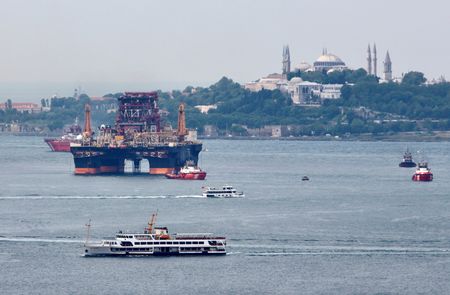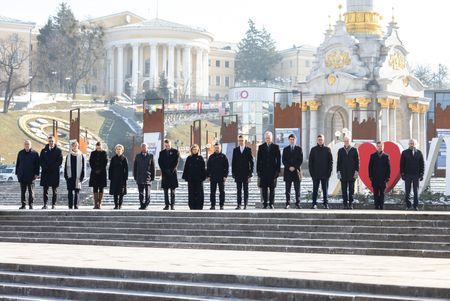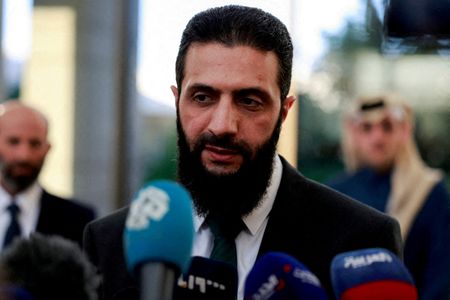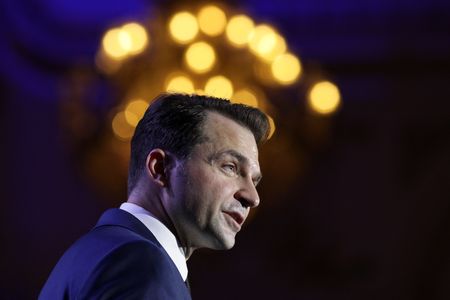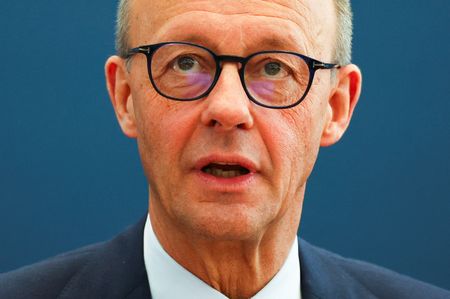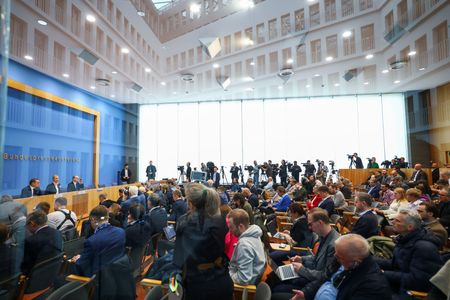By Andrew Gray and Lili Bayer
BRUSSELS (Reuters) -“Worried” European foreign ministers said on Monday the region had entered a new era with U.S. President Donald Trump’s stunning reversal of decades of U.S. foreign policy, but that they still hoped the relationship with Washington could endure.
European officials have been left flat-footed by Trump’s decisions to hold talks on ending the war in Ukraine with Russia, spurning both Kyiv and Europe, and by his administration’s warning that the United States was no longer primarily focused on Europe’s security.
“It’s clear that the statements coming from (the) United States make us all worried,” EU foreign policy chief Kaja Kallas said after a meeting of European Union foreign ministers in Brussels. But she added that Europe and the United States had worked out their differences before “and we also expect to do so this time.”
“Of course, (the transatlantic relationship) is going to change. That is very clear, but we shouldn’t … throw something out to the window that has worked well so far.”
Earlier Friedrich Merz, the winner of Sunday’s German general election, had questioned whether NATO would remain in its “current form” by June and said Europe must quickly establish an independent defence capability.
“The era that started at the fall of the Berlin Wall is now over,” Dutch Foreign Minister Caspar Veldkamp said, when asked about the remarks by Germany’s likely next chancellor.
“As Europeans, we need to organise, not only within the EU but with the Brits and the Norwegians and other countries that want to participate, to face the new challenges that are presented to us, also by Trump,” Veldkamp said before the Brussels meeting.
Analysts at the Eurasia Group said in a note the events of recent weeks showed “Europe is on the cusp of a much more dangerous world”, adding their sense was that EU leaders were “freaking out”.
“What is clear now is that its ability to respond in the coming weeks and months could help determine the shape of the international order — and its place in it — for decades to come,” they wrote.
EXTRAORDINARY SUMMIT
The EU ministers agreed on yet another package of sanctions against Moscow, to coincide with the third anniversary of Russia’s invasion of Ukraine, before a flurry of meetings in Brussels, Kyiv and Washington on Ukraine in the coming days.
EU leaders will meet for an extraordinary summit on March 6 to discuss additional support for Ukraine, European security guarantees and how to pay for European defence needs.
“I would never have thought that I would have to say something like this in a TV show but, after Donald Trump’s remarks last week… it is clear that this government does not care much about the fate of Europe,” Merz told German public broadcaster ARD after his conservatives’ election win.
Czech Foreign Minister Jan Lipavsky said Europe would have to show strength but work to keep ties with the United States.
“We all can feel the change in the U.S. rhetoric, especially like the last two-three weeks,” Lipavsky said in Brussels. “But it doesn’t mean that we stop this engagement otherwise. Exactly the opposite,” he said.
Also on Monday, multiple EU leaders and ministers visited Kyiv to show support for Ukraine, while France and Britain’s leaders will meet Trump in the United States this week.
“We must speed up the immediate delivery of weapons and ammunition,” European Commission President Ursula von der Leyen said in Kyiv. “And this will be at the heart of our work in the coming weeks.”
The EU’s 16th package of sanctions against Russia, which foreign ministers agreed on Monday, includes a ban on primary aluminium imports and sales of gaming consoles, as well as listing owners and operators of 74 so-called shadow fleet vessels used to evade sanctions.
(Reporting by Andrew Gray, Bart Meijer, Lili Bayer; writing by Ingrid Melander; Editing by Tom Hogue and Alex Richardson)




